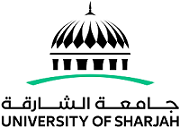Investigating the Rheological Properties of Rubber-Modified Asphalt Binders to Meet Climate and Traffic Conditions in the UAE =التحقيق في الخصائص الريولوجية لمواد رابطة الأسفلت المعدلة بالمطاط لتلبية الظروف المناخية والمرورية في دولة الإمارات العربية المت
Linked Agent
Al-Khateeb, Ghazi., Thesis advisor
Zeiada, Waleed,, Thesis advisor
Date Issued
2021
Language
English
Keyword
Thesis Type
Thesis
Abstract
The tire rubber is considered one of the most polluting materials that are dumped and buried in the landfills continuously and is predicted that 1200 million End of Life (ELF) tires will be produced by the end of 2030 annually. Moreover, the interests of the developed and developing countries are pointing toward sustainable eco-friendly systems such as the United Arab Emirates (UAE), which is considered a high-income developing country. Additionally, asphalt pavement is continuously exposed to internal and external stresses generated by the vehicular loads and climate conditions. Therefore, several modifications have been implemented with the asphalt binder to strengthen the mixture, increase the service life, and have a more sustainable and resilient road network. Rubber-modified asphalt has been implemented in the field since 1930s. However, its potential to improve the asphalt mix has been recently an area of research as the landfills are being filled with an enormous number of ELF tires annually. This study aims at investigating the rheological properties and laboratory performance of different rubber-modified asphalt binders that contain different crumb rubber contents by weight of asphalt binder (5%, 10%, 15%, 20%, 25%). Furthermore, the high shear mixing was conducted according to specific mixing characteristics obtained and recommended throughout the literature 90 minutes mixing time at 190 °C with a mixing speed of 6000 RPM. The scope of work of this study included the testing of a control asphalt binder and 5 rubber-modified asphalt binders using conventional tests, namely: Penetration, Softening Point, and Rotational Viscosity tests. Moreover, the Superpave tests was conducted as well to assess the laboratory performance of all asphalt binders against rutting, fatigue cracking, and thermal cracking using both the Dynamic Shear Rheometer (DSR) and the Bending Beam Rheometer (BBR). Other advanced test methods such as the Multiple Stress Creep Recovery (MSCR) test and the Linear Amplitude Sweep (L
Note
Thesis Submitted in Partial Fulfillment of the Requirements for the Degree of Master of Science in Civil Engineering
Category
Theses
Library of Congress Classification
TA404.8 .I863 2021
Local Identifier
b13985589







